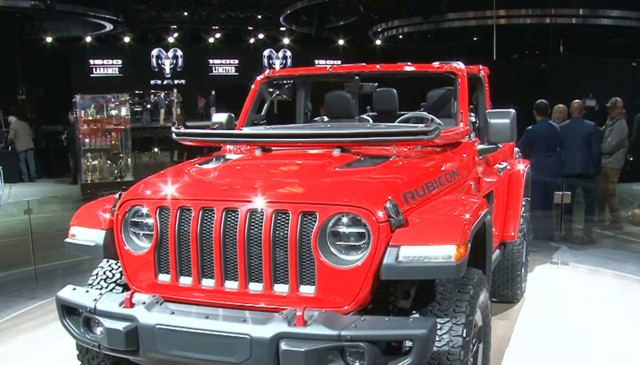Despite decades of decline, Detroit remains at the heartbeat of the United States auto industry. The city’s North American International Auto Show continues to act as an important barometer for car manufacturers.
CGTN America’s Dan Williams has more.
The Trump administration is threatening to withdraw from the North American Free Trade Agreement (NAFTA) if progress is not made to rebalance trade on the continent. That deal is seen by many as crucial to the car industry.
“Car production pretty much rests on a NAFTA platform,” said Eric Kulisch of Automotive News. “The whole industry has been set up and constructed in a way over the last quarter of a century to have an integrated supply chain and manufacturing platform in all three countries. The cost structure could get out of whack if NAFTA falls apart.”
Some automakers appear to be hedging their bets. Fiat Chrysler announced earlier this month it would shift production of their Ram heavy duty picks up from Mexico to Michigan. While Mazda and Toyota announced they would build a joint plant in Alabama, U.S. Auto companies are lobbying for NAFTA to remain largely in place, a view echoed by local politicians.
“We need to continue NAFTA,” said Michigan Gov. Rick Snyder. “What we should really be doing is updating NAFTA. If you look at it a couple of decades ago and it didn’t really reflect all of these new technologies. (With) The importance of more information technology in the vehicle, all of the electronics. So there are some important update areas but let’s not have it fall apart.”
Auto industry leaders will no doubt be watching the latest round of NAFTA talks closely. And if a deal cannot be reached and if the U.S. were to withdraw, then analysts warn that the impact on car manufacturers could be severe. A recent study by Oxford Economics, a global consulting firm associated with the University, claims a U.S. NAFTA withdrawal would cost the United States 300,000 jobs and cut economic growth.
“The Auto industry hires a lot of people and there could be significant impact if NAFTA falls apart,” said Kulisch. “Yes, there may be some hiring here but it is not a direct correlation; that if Mexico and Canada are no longer free trade partners, that the components and vehicles will be made here. You’ve got to be careful what you wish for.”
The U.S. car industry has endured various bumps in the road over the years. Car makers will be hoping the NAFTA talks don’t lead manufacturers into a road block.
 CGTN America
CGTN America
